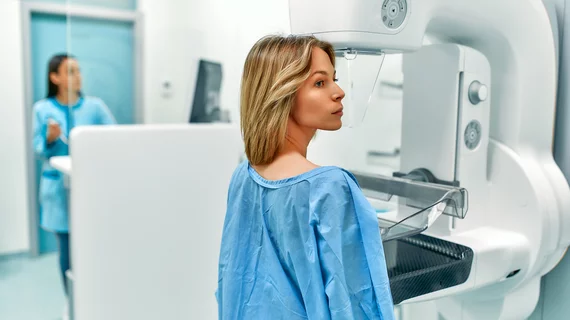ACR releases new mammography guidance to aid in ongoing COVID-19 resurgence
As the U.S. experiences an ongoing resurgence of COVID-19 cases, the American College of Radiology is providing new guidance to help physicians grapple with interruptions to regular breast cancer screenings.
Hospital systems in some geographies are in “dire straits” as beds fill with unvaccinated patients, forcing providers to operate with “crisis standards of care” the CDC chief said this week. As such, some mammography facilities are reinstating safety procedures unseen since nonurgent care shutdowns in July 2020, the ACR said Wednesday.
“The recent COVID-19 resurgence may cause many more women to miss their screening mammogram in 2021,” the college said in a Sept. 29 update. “Missed appointments may lead to delayed cancer diagnoses, unnecessary breast cancer deaths and more aggressive treatment. Let’s not let this happen.”
ACR has released a new “Continue Mammography Care” toolkit for those putting pandemic safety measures back in place. It includes pamphlets explaining what to expect at an imaging facility, guidance for providers during shutdowns, a cancer risk assessment handout, and sample letters to send to referrers and patients.
COVID-19 caused widespread interruptions to screenings last year that experts worry could lead to worse outcomes down the line. The Centers for Disease Control and Prevention estimated mammography screenings plummeted 87% in April 2020 when compared to the same period in previous years. One study found that mammography numbers are not bouncing back to pre-pandemic levels for some, while another pegged the breast cancer screening deficit due to COVID at 3.9 million.

